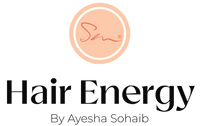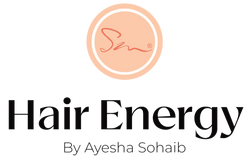Aloe vera is a common hero when it comes to natural skin and hair care solutions. Aloe vera, well-known for its calming qualities and several health advantages, is frequently promoted as a wonder cure for a variety of cosmetic issues. Still, among all of its benefits, one pressing doubt endures, is it possible for Aloe Vera Gel to encourage the growth of facial hair? Let's investigate this question to get the real story behind this widely held notion.
Nature's Versatile Healer
A Brief Overview of Aloe Vera
The Arabian Peninsula is home to the succulent plant species aloe vera, which is prized for its gel-filled leaves that contain an abundance of medicinal components. Aloe vera has been used medicinally for millennia in traditional medicine to treat digestive disorders, skin issues, and more recently, cosmetic uses. It has been revered for generations.
The Composition of Aloe Vera Gel
Central to aloe vera's healing prowess are its constituents, including vitamins, minerals, enzymes, amino acids, and polysaccharides. Noteworthy compounds such as acemannan, aloin, and gibberellins contribute to its anti-inflammatory, antimicrobial, and moisturizing properties.
Aloe Vera and Facial Hair Growth
The Claim
The notion that aloe vera gel stimulates facial hair growth has circulated in popular culture and folklore for years. Proponents of this belief often attribute the purported effect to certain enzymes and nutrients present in aloe vera gel, asserting that regular application can lead to thicker and fuller facial hair.
The Reality
Contrary to popular belief, scientific evidence to support the claim that aloe vera gel directly induces facial hair growth is lacking. While aloe vera offers a plethora of benefits for skin and hair health, there is no empirical data suggesting that it possesses the ability to initiate or accelerate hair growth on the face.
The Science Behind Hair Growth
Hair Growth Cycle
Determining the effectiveness of various treatments requires an understanding of the dynamics of hair development. The three phases of the hair development cycle are telogen (the resting period), catagen (the transitional phase), and anagen (the growing phase). The growth of hair is influenced by various factors such as hormone balance, nutrition, genetics, and external stimulation.
Factors Influencing Facial Hair Growth
Facial hair growth patterns are primarily dictated by genetic predisposition and hormonal factors, particularly androgens such as testosterone and dihydrotestosterone (DHT). The density and distribution of facial hair follicles are predetermined during embryonic development, with variations among individuals.
Benefits and Limitations
Benefits of Aloe Vera for Hair
While aloe vera may not directly stimulate facial hair growth, its benefits for overall hair health are well-documented. When applied topically to the scalp, aloe vera gel can nourish the hair follicles, moisturize the scalp, reduce inflammation, and promote a conducive environment for healthy hair growth.
Limitations and Considerations
It's important to understand that different people will experience different levels of success from using aloe vera for hair care and that variables like hair type, pre-existing scalp issues, and the quality of the aloe vera product being used can all have an impact. Furthermore, aloe vera shouldn't be used as a stand-alone treatment for issues with hair development; rather, it should be a component of a thorough hair care routine.
Alternative Approaches to Promote Facial Hair Growth
Nutritional Support
Optimizing nutrition by consuming a balanced diet rich in essential vitamins and minerals can support overall hair health, including facial hair growth. Nutrients such as biotin, vitamin D, zinc, and protein play integral roles in the synthesis of keratin, the protein constituent of hair.
Topical Treatments
Several topical therapies that contain minoxidil—a drug that the FDA has licensed to encourage hair growth—have shown promise in increasing the thickness and density of facial hair. To determine compatibility and reduce potential adverse effects, it is essential to speak with a healthcare provider prior to utilizing such products.
Aloe Vera's Potential in Skincare
Skincare Benefits of Aloe Vera
Beyond its purported role in hair care, aloe vera boasts a plethora of benefits for skincare. Its hydrating, anti-inflammatory, and antimicrobial properties make it a versatile ingredient in skincare formulations. Aloe vera gel can help soothe sunburns, alleviate skin irritation, reduce acne inflammation, and promote wound healing.
DIY Aloe Vera Skincare Recipes
Making homemade beauty products is a great way to utilize aloe vera's potency in skincare. Aloe vera gel is a main ingredient in many DIY recipes, ranging from soothing body lotions to nourishing face masks. Aloe vera's advantages for skincare can be increased by combining it with other natural ingredients like honey, coconut oil, or oats.
The Importance of Diligent Research and Personal Experimentation
Navigating the Landscape of Natural Remedies
We must be careful of personal claims when searching for natural remedies for prevalent health and cosmetic issues. Traditional wisdom and anecdotal evidence can provide insightful information, but in order to properly determine efficacy and safety, they need to be supported by actual data and scientific study.
Personalized Wellness Journeys
Each individual's body chemistry, genetics, and lifestyle factors contribute to their unique response to skincare and hair care products. Therefore, embracing a spirit of experimentation and self-discovery is key to uncovering the most effective solutions for one's specific needs and preferences.
Redefining Beauty with Nature's Bounty
Placed away at the forefront of the natural beauty revolution is Hairenergy, a forward-thinking cosmetic company dedicated to capturing the powerful life force of natural treasures. Via its creative formulations, it captures the essence of overall beauty with a firm commitment to sustainability, openness, and efficacy. Each Hairenergy product is carefully developed to nourish the skin and hair, balancing traditional wisdom with modern research, and inspired by the restorative power of nature.
Empowering Choices for Holistic Well-being
Embracing Diversity in Beauty Standards
It is essential that we embrace variety in all of its forms as we navigate the fields of beauty and self-care. Even while society may impose certain standards of beauty, real empowerment comes from accepting uniqueness and self-expression. The path to self-love and acceptance is incredibly complex and unique, regardless of whether one chooses to experiment with different facial hair styles, keep a clean-shaven appearance, or develop a full beard.
Prioritizing Holistic Well-being
Amidst the pursuit of external beauty, let us not overlook the importance of holistic well-being encompassing physical, mental, and emotional health. Cultivating self-care practices that nourish the body, mind, and spirit fosters a profound sense of balance and vitality, transcending superficial notions of beauty.
Separating Fact from Fiction
Among a multitude of claims regarding aloe vera's effectiveness for hair development, it's critical to differentiate between scientific validation and personal experience. Aloe vera has several advantages for skin and hair care, such as calming, moisturizing, and maintaining the health of the scalp; nevertheless, it is unclear how directly it can promote the growth of facial hair.
Keeping an informed and critical mindset when navigating the world of natural medicines and beauty practices allows us to make well-informed decisions about our personal care regimens. Aloe vera's many benefits continue to enhance the field of holistic wellness and beauty, even though it might not be the secret to growing a lush beard or mustache.












